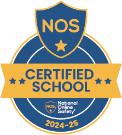
- Home
- Curriculum
- Careers, Education, Advice and Guidance
Careers, Education, Advice and Guidance
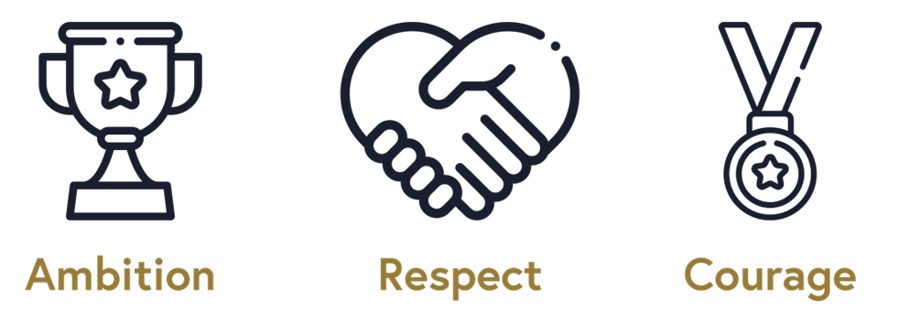
Our Vision
Ambitious Goals
Respectful Learners
Courageous Individuals
An ambitious careers programme which provides our pupils with the knowledge and skills needed to achieve their goals and raises aspirations within the school and local community.
Our Provider Access Policy can be viewed here: School Policies
Careers Education at The Marvell College
The provision for Careers, Education, Information, Advice and Guidance (CEIAG) is an important part of our curriculum at The Marvell College. We believe that an exciting programme of activities, events, opportunities and experiences is vital in helping to ensure that our pupils are well placed to make informed choices about the next stage of their education, employment or training when they leave The Marvell College.
A strong CEIAG programme from Year 7 to 11 inspires pupils to plan their journey towards a career that fulfils their ambition and in doing so, work hard to develop the knowledge and skills that they need to play an active part in the job markets of the future. Through our curriculum we also challenge and support pupils in developing important values and personal characteristics that will help them meet the demands of the careers of the future. These include things such as pride, resilience, perseverance, adaptability and teamwork.
AIMS AND OBJECTIVES:
- Ensure that all pupils at the school receive a stable careers programme.
- Enable all pupils to learn from information provided by the career and labour market.
- The CEIAG programme should be individual and address the needs of each pupil.
- Link the curriculum learning to careers learning.
- Provide pupils with a series of encounters with employers and employees.
- Provide pupils with experiences of workplace(s).
- Ensure that pupils have a series of encounters with further and higher education.
- Provide each pupil with the opportunity to receive personal guidance.
The School will assess the impact of its careers programme on pupils by completing an annual pupil survey and analysing destinations data in line with activities that they have taken part in at school. In addition, the views of pupils and parents will be surveyed after key events eg: the Careers Information Evening and Year 10 Work Experience.
Our CEIAG programme is continually under review as we consider the needs and views of our pupils. Updates will also be made in line with guidance received from the Government and local industry partners who support us in the design of our CEIAG curriculum. An overview of our CEIAG provision is available below.
If you require any further information regarding Careers, Education, Information, Advice and Guidance please contact Mrs O’Connell, Careers Leader.
Review date: July 2024
Telephone: 01482 799132
Email: careers@themarvellcollege.com
Destinations Data
The Graph below shows the destinations of pupils from the Marvell College 2021/22
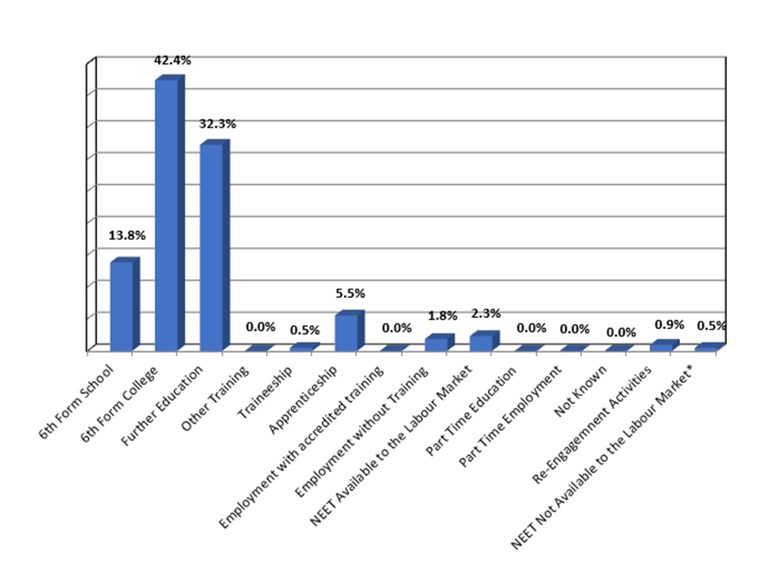
Pupils who leave the college and don’t go into training, education or employment are known as NEETs.
NEET Data
2021/2022 2.3% NEETS
2020/2021 1.7% NEETS
2019/2020 0.6% NEETS
2018/2019 0.4% NEETS
2017/2018 0.6% NEETS
2016/2017 No NEETS
2015/2016 No NEETS
The Careers Programme at The Marvell College
CEIAG is taught in each year group as part of our PSHE programme. The unit on employability allows pupils to explore the different careers they are interested in while also developing key employment skills.
To provide a programme for CEIAG that is of the highest standard we work towards fulfilling ‘The 8 Gatsby Benchmarks of Good Careers Guidance’ which are detailed below. These are an important part of the Governments Careers Strategy: making the most of everyone’s skills and talents.
GATSBY BENCHMARKS
- A stable careers programme - Every school should have an embedded programme of career education and guidance that is known and understood by pupils, parents, teachers, governors and employers.
- Learning from career and labour market information - All pupils and parents should have access to high-quality information about future study options and labour market opportunities. They will need the support of an informed adviser to make best use of available information.
- Addressing the needs of each pupil - Students have different careers guidance needs at different stages. Opportunities for advice and support should be tailored to each of these stages, with diversity and equality embedded in the school’s careers programme.
- Linking curriculum learning to careers - All teachers link curriculum learning with careers.
- Encounters with employers and employees - Every pupil should have multiple opportunities to learn from employers about work, employment and the skills that are valued in the workplace.
- Experiences of workplaces - Every pupil should have first-hand experiences of the workplace through work visits, work shadowing and/or work experience to help their exploration of career opportunities and expand their networks.
- Encounters with further and higher education - All pupils should understand the full range of learning opportunities that are available to them. This includes academic and vocational routes and learning in schools, colleges, universities, and the workplace.
- Personal guidance - Every pupil should have opportunities for guidance interviews with a Careers Adviser, who could be internal (a member of school staff) or external, provided they are trained to an appropriate level. These should be available whenever significant study or career choices are being made. They should be expected for all pupils but should be timed to meet their individual needs. Every pupil should have at least one such interview by the age of 16, and the opportunity for a further interview by the age of 18.
Key Employment Skills
Employability Skills can be defined as the transferable skills needed by an individual to make them 'employable'.
Transferable skills can make you really stand out to employers, even if you don’t have specific experience in their industry. If you don’t have any previous work experience, these can also be gained from hobbies, voluntary work or even playing sport.
You are likely to have a whole set of valuable skills you can take with you from one job to another.
It’s worth knowing what skills are most wanted by employers so you can highlight them in upcoming job applications. We have identified a range of employability skills that we want our students to be able to use across their school curriculum and in their lives beyond The Marvell College.
Dependability
Dependability is the quality of being reliable and trustworthy. In the workplace, being dependable allows people to trust that you can do what you say you're going to do correctly and in a timely fashion. The skill combines punctuality, accuracy, responsibility, time management and organisation. As a result of demonstrating this skill, your employer and team members can continuously trust you with similar tasks in the future since they know you can accomplish the necessary goals.
Leadership and team management
Leadership and team management are the abilities to lead a team in performing a task from start to finish. These skills indicate that you can effectively manage and delegate tasks, organise a working calendar, solve team problems, set clear and actionable goals, and coach people whilst implementing decisions that affect others. Capable team managers motivate others to accomplish goals, collaborate, resolve conflicts, and support one another in reaching goals and improving.
Problem-solving
Problem-solving is assessing a challenge and accurately developing an effective solution. When obstacles arise in any industry, companies need employees who can handle them efficiently, calmly and logically. Problem-solving combines other transferable soft skills like communication, critical thinking and research. In some positions, problem-solving may also involve industry- or role-specific technology, knowledge and/or previous experience.
Communication
Communication skills allow you to pass information concisely to your superiors, staff and colleagues. In nearly all workplaces, you must communicate clearly via phone, email, instant messaging and in person.
There are four main skills required to communicate effectively:
Writing: This type of communication comes in many forms, depending on your industry and role. You may be required to write frequently in your workplace, whether writing a letter, report, financial document, email or memo. In general, being able to summarise your most important points, use accessible vocabulary and be grammatically correct are universal writing skills.
Speaking: This form involves being able to talk to others, using professional tones of voice and vocabulary, as well as reading and using body language, facial expressions and other gestures.
Listening: You should also have good active listening skills to fully understand a speaker's arguments, concerns, questions or directions.
Presenting: These skills you need to deliver effective and engaging presentations to various audiences. This involves clear speech patterns, confident body language, dynamic and easy-to-understand slide shows and other visuals and answering questions or defending arguments.
Time management
Time management refers to how a person plans, prioritises and organises their time and tasks according to deadlines. People with good time management skills can better identify which tasks to focus on daily, minimise distractions, track progress towards goals and deadlines and assess their work processes to improve efficiency.
Adaptability
Employers understand that business strategies are ever-changing. For this reason, employees must be able to adapt to changes, learn new skills and ensure that work is done efficiently, even as demands increase. Employees can also use their adaptability skills to complete different projects, work with new team members and cope with changing leadership.
Technological literacy
Technological literacy is learning, operating, and performing basic troubleshooting on computers, software, and other technological equipment. Many employers seek candidates with prior experience with standard workplace technology or who can quickly learn to operate new tools and software.
You can learn to operate general office and documentation programs, conferencing applications, interoffice communication apps, email software and other industry- and role-specific software. Basic troubleshooting skills will help you operate printers, videoconferencing, and computer-related storage devices.
Organisation
Being organised involves planning projects, tasks and goals, allocating time and resources and establishing a productive workspace. This skill is essential when you must coordinate a team and distribute tasks to achieve goals, improve productivity and efficiency or determine the best way to do your everyday work.
Resilience
Resilience is the ability to bounce back and thrive from challenges and it is an important skill, both in life and work, to help you cope with stress and protect your mental health and wellbeing.
Perhaps you have had to test your resilience as a student – failing to meet a deadline, not performing as well as you’d hoped in an exam, dealing with personal issues alongside your studies. You will probably experience some of these stresses during your working life, but psychologists believe that anyone can learn to become more resilient – and the key is being optimistic!
Emotional intelligence
Emotional intelligence involves being aware of and having control over your emotions as well as understanding the emotions of others. Recognising and appreciating emotions can help you improve your social skills and the ability to handle other people's reactions to information and challenges. This can increase positive interactions within teams in the workplace. You will also have minimal disagreements amongst your team, as you'll be able to assess the root of any would-be problems. By enhancing your emotional intelligence, you'll also improve several other skills such as self-control, empathy, self-awareness and motivation.
Creativity
Creativity and creative thinking are the ability to consider something in a new way – thinking outside the box. It often involves lateral thinking and the ability to pick out solutions which are not always obvious.
This could mean unearthing a new approach to a problem, devising different ways to carry out tasks, offering conflict resolution suggestions and effectively presenting fresh and sometimes unorthodox perspectives to your role.
Every business and field of work needs people who are creative problem solvers. These innovative employees seek out new solutions instead of accepting the norm, and this can result in business-critical overhauls such as money saving methods or enhanced consumer satisfaction.
Links in the Community

Connexions | Hull City Council
Connexions – Support our pupils with applying for colleges using the Log On Move On programme and run our one to one careers interviews with KS4 pupils.

Home | HOP Humber (hop-humber.co.uk)
HOP – The Humber Outreach Programme has been helping us raise pupils aspirations by challenging common misconceptions about university and arranging for our year 10 and 11 pupils to visit The staff have also led assemblies on post 14 and post 16 options to provide our pupils with independent advice on their futures.

HEY LEP - Hull and East Yorkshire
HEY LEP – We are a member of the Hull and East Yorkshire Local Enterprise Partnership. This provides us with the opportunities to talk to other schools in the region and local businesses to ensure our careers provision reflects the needs of our pupils and the job market within our region.

Browns Books (brownsbfs.co.uk)
Browns Books – Browns Books continues to support the school by providing us with their views on the careers programme we offer and suggestions for how we can develop employability skills with our pupils. They also provide us with work experience placements for our pupils.

Shine - Schools and colleges, University of York
SHINE Project: University of York. The Shine Project run by the University of York provides our pupils with the opportunity to discuss university life in a smaller setting. In year 9 they will get to visit the University of York and in year 10 they will be able to take part in a two-day residential on the university site. The project aims to provide pupil with information on university life, budgeting and build employability skills.
Upcoming Events
Past Events
Careers Fair
We were delighted to be able to welcome a number of employers, apprenticeship providers, Universities and FE colleges into the school this week to talk to our Year 10 and 11 students about their futures. We were even more pleased to see the number of students who arrived with their parents and carers to discuss their options for the future. Some of them even secured a work experience placement while they were on site. Feedback from the employers was overwhelmingly positive, with many commenting on how polite and respectful our students were and how well informed they were. Some quotes are below.
Wilberforce College ‘It was so nice to speak to your students – they are well informed about their options and keen to learn more.’
Mcarthur Dean ‘The students I spoke to were a credit to you all and all asked questions and were polite and friendly. It was lovely to also be able to talk to parents and explain about the apprenticeship programme.’

Work Experience Evening for year 10
We were pleased to welcome so many of our Year 10 students and their parents/ carers onto site this week to launch our Work Experience Programme. Lots of our students have some great ideas about what they would like to do for this week.
Year 11 University visits
Last Friday we took a group of year 11 students to visit the University of Hull. The day consisted of a discussion of what university life is like, the different courses that can be completed and the wide range of different universities across the UK. This was followed by a tour of the campus. I know several of our students were impressed with the sporting facilities, others enjoyed looking around the student union or looking at the science laboratories. After lunch the students took part in a budgeting challenge with students getting very competitive and arguing over whether a chocolate cake counted as a necessary item in the weekly shop! After a discussion about the financial support available for university students the day ended with a quiz recapping the key themes of the day. The competition was fierce with several students delighted to beat the staff team comprising of Mrs O’Connell, Mr Giannasi and Miss Effard.
Staff at the University praised our students as seen in the comments below. As a school we are proud to see them being such amazing role models and representing our school with pride. We look forward to taking a second group of year 11 students later in the year.
'Your students were so well behaved and interested and it really made for a lovely day. It was a joy to have you on campus.'
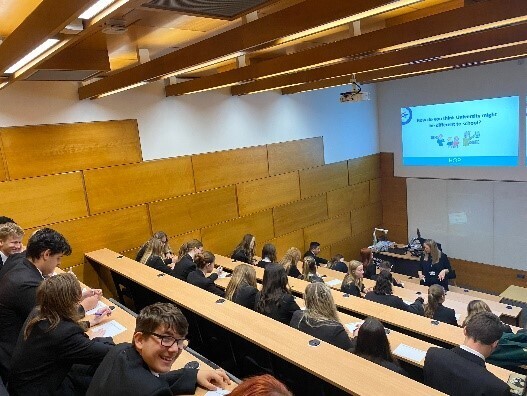
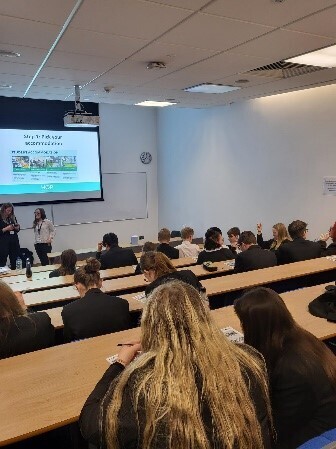

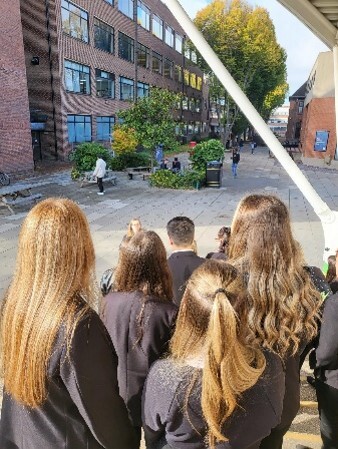
National Apprenticeship Week 6th - 12th February 2023
During tutor time we engaged with a range of activities based around apprenticeship providers in the local area.
What is an apprenticeship?
- An apprenticeship is a real job where you learn, gain experience and get paid.
- You must be 16 or older to apply
Apprenticeships include:
- hands-on-experience in a sector/role of interest
- at least 20% off-the-job training
- formal assessment which leads to a nationally recognised qualification
- You're an employee with a contract of employment and holiday leave
Famous Apprentices
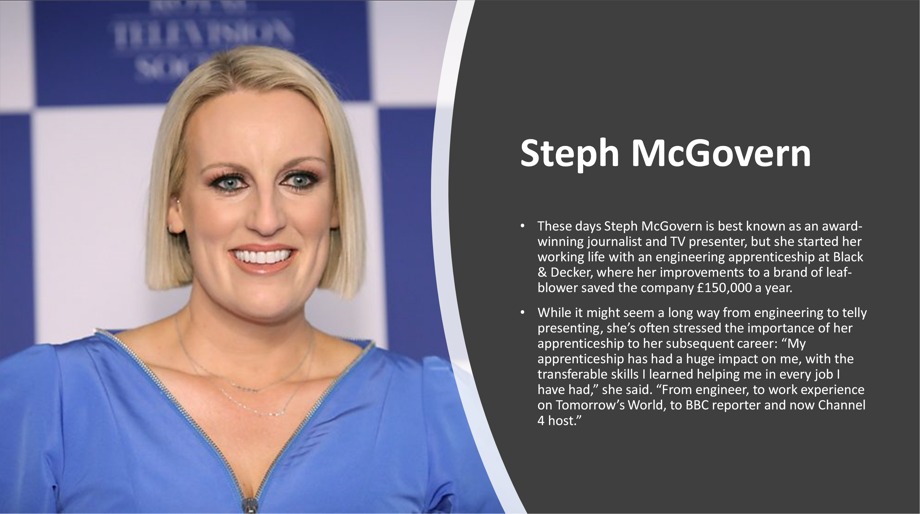
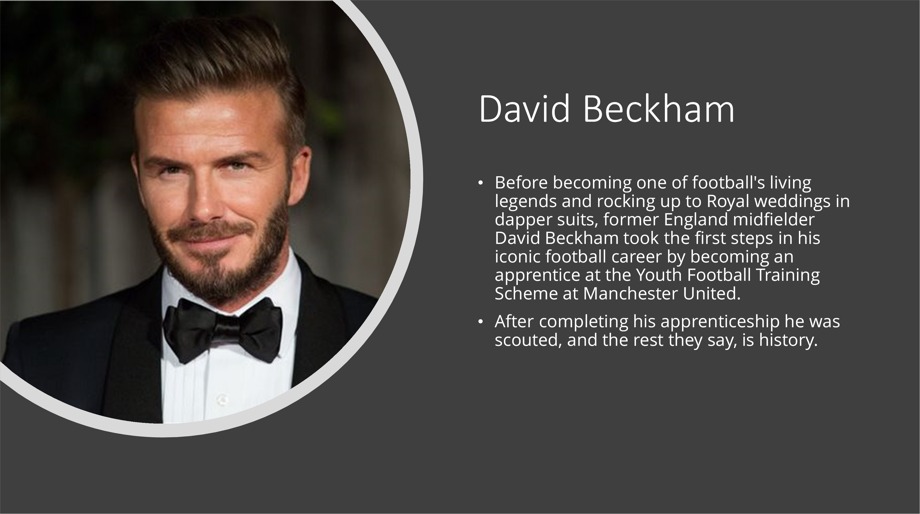
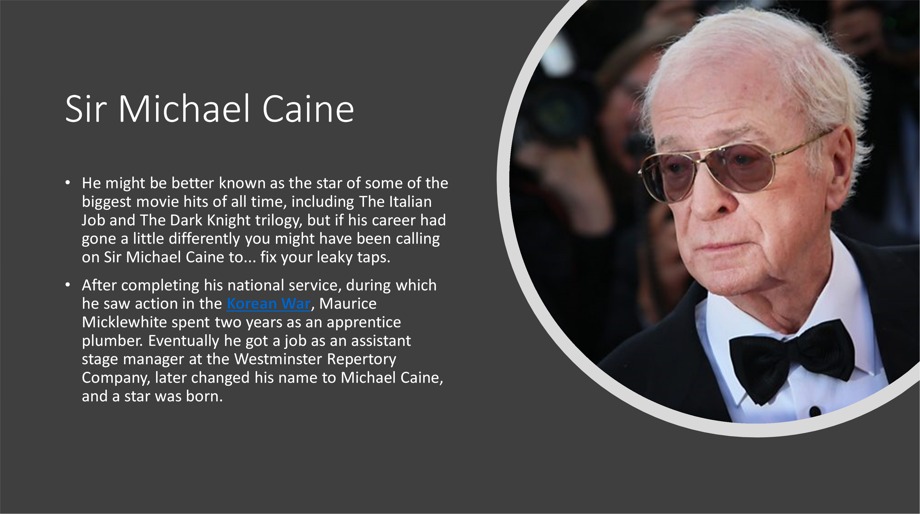
Job of the Week
Job of the Week
Each week pupils will have the opportunity to discuss a different career, looking at the qualifications needed, average salary and the best routes into this industry. So far we have looked at the jobs listed below. If students are interested in a particular job they should see Mrs O’Connell.
- Barber
- Mechanic
- Nurse
- Joiner
- Police Officer
- Teacher
- Tattoo Artist
- Mental Health Practitioner
- Firefighter
- Brick Layer
- Optician
- Graphic Designer
- Postal Worker
- Detective
- Disaster Manager
- Vet
- Games Tester
- Architect
LMI
The Marvell College works closely with LMI Humber and the Local Enterprise Partnership (LEP) to access high quality information about the local Labour Market.
The LMI Humber website can be found here: Home - LMI Humber
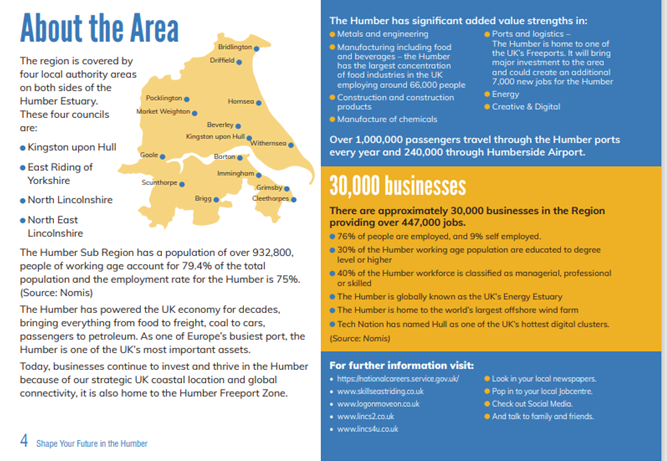
Work Experience
All pupils in Year 10 will be given the opportunity to take part in a work experience placement. This usually takes place in July each year. Pupils are encouraged to find their own placement in an area they are interested in. The school provides support with this during tutor time and in an after school drop in session on a Wednesday night.
All our placements are health and safety checked by E2W to ensure our pupils can have a safe experience.
If you are able to support pupils at The Marvell College by offering a work experience placement please contact the careers leader Mrs O’Connell at careers@themarvellcollege.com
What are your options post 16?
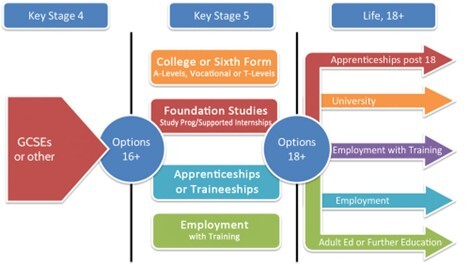
In England, you are required to stay in education or training until you turn 18. However, you do not have to stay in school, although training needs to be a part of your job if that is what you choose instead. You could choose to stay in full time study and move to college or you may decide a work-based traineeship or apprenticeship suits you better. You can also decide whether you want to study and train full or part time. You can search for your next step by looking for specific courses such as English, Maths, Hair and Beauty or Plumbing. Alternatively, you can look into the options that are offered at specific colleges, schools or training providers.
For more guidance on what to do after secondary school take a look at the UCAS website’s Post 16 page.
Take some time to explore LogOnMoveOn which can be used to search for courses and/or apprenticeships.
Where will your next steps take you?
Take a look at some of the options available for you!
Sixth Form Colleges
Sixth Form Colleges vary in sizes, courses and extra-curricular activities that might interest you. Colleges tend to be bigger and offer a more diverse array of subjects for you to study.
Thinking further education might be the route for you? Remember these top tips to help choose where to go.
- Search for colleges in your area that offer the course or subjects you want to study.
- Go to open days – these are great opportunities to explore the college and to find out more about the courses on offer.
- Find out as much as you can – college life can be quite different from secondary school and the education you’ve known so far.
Apprenticeships
An apprenticeship is essentially a job. You will spend 80% of your work week at your job and 20% at your place of study. You will earn a salary and your course costs will be covered by the government and your employer. It will be up to you to manage your time between work and study. There are many different apprenticeships you can apply for across a broad range of industries.
For more details on what an apprenticeship is explore the UCAS Understanding Apprenticeship page.
Search and apply for apprenticeships through the Gov.uk site.
Sixth Form and Apprenticeship providers in the area:

SM6 https://smchull.org/sm6-sixth-form

Wilberforce College https://wilberforce.ac.uk/

Wyke College https://wyke.ac.uk/

Hull College https://www.hull-college.ac.uk/

Bishop Burton College https://www.eastridingcollege.ac.uk/

East Riding College https://www.bishopburton.ac.uk

Trinity House Academy https://www.hthacademy.org.uk/post-16/ #

Ron Dearing UTC https://www.rondearingutc.com/

HETA: https://www.heta.co.uk/

Avant https://www.avant.ac.uk/

Swift Leisure https://www.swiftgroup.co.uk/about/work-for-swift/

How can you support your Child?
How can you support your child?
As a parent or carer, talk to your child about jobs that interest them. You can help them to research different careers or find out skills and qualifications needed to do certain jobs. You can be a positive influence on your child's choices.
Your child's career plans
Your child will need to make decisions at different times. It's important to ask them about careers from time to time.
Get them to chat about the jobs they see other people doing. This could be someone they know or admire. It could be people they pass on the street, see on television or in magazines. You could also discuss types of jobs that might be relevant to their interests, skills or aspirations.
Listen to your child and discuss their options
To help your child with career planning, it's important you:
- listen, don’t judge
- are open to ideas and encourage them to explore all their options
- keep in mind that your child’s choices and decisions should be based on their aspirations and abilities, not on what you think they should do
- remember that not everyone has a clear idea what they want to do so your child's career ideas may change as they get older
Helping your child plan a career
Once your child has some ideas about what they would like to do, encourage them to do some research. You can help them find out what is needed to work in a certain career.
As well as helping them decide on their next steps, you will also be helping them to develop the decision-making skills important in adult life. They'll need to consider the pros and cons of various options, make a decision based on the information available - then put their plan into action.
How you can help your child's future
To help your child to think about different choices, you can encourage them to:
- talk about their career ideas and future plans
- research various careers
- know about options available in education, employment and training
- discuss ideas and options with teachers or careers advisers at school or college
- find out about training, college, and university entrance requirements as well as what is needed for jobs they are interested in
- develop their skills by taking part in clubs and activities, both within and outside of school - this will help them when they are applying for courses or jobs
- find out about the world of work through work experience and extra-curricular activities by talking to relatives and family friends about the kinds of work they do
- go to careers events their school organises
What are the options for your child after Year 11?
The 3 main ones are:
- Full-time education
- Apprenticeships or traineeships
- Part-time training with a job, self-employment or voluntary work
All children must stay in some form of learning until their 18th birthday.
Full-time education
Your child can choose from:
- A levels
- Btecs
- NVQs
- T levels (New for 2020)
There are both 1 year and 2 year options available.
There are both academic or job related courses to suit ALL ability levels and your child can progress to the next level of each course wherever they start.
Your child can study for one of these at:
Sixth form
College
A training provider
This option may be suitable if:
- Your child plans on going to university
- Enjoys studying
- Wants to study further before getting a job or applying for an apprenticeship
A levels
They usually focus on academic subjects, compared to vocational qualifications like BTECs and NVQs, which are more practical. There are more than 40 different A-level subjects on offer – some will be subjects that you studied at GCSE and others may be new.
A-levels are highly valued by employers and universities so they can open up lots of doors to further study and careers.
They can be studied at college or at sixth forms.
What will your child need?
5 GCSEs at grade 4 – 9 (some may require a minimum of a grade 5)
BTECs
BTECs provide the opportunity to gain hands-on experience in a field or subject, and are a viable alternative to the more theory-focused, classroom-based ways of learning which you might be put off by.
BTECs are becoming a more popular path to both university and particular jobs in place of, or in addition to, A-levels.
- BTEC Level 1 and 2 = equivalent to a GCSE
- BTEC Level 3 = equivalent to an A-level
- BTEC Level 4-5 = equivalent to 1st and 2nd year of an undergraduate degree
What will your child need?
5 GCSEs at grade 4 - 9 to get on to a level 3 BTEC course.
NVQs
The NVQ is a work based qualification which recognises the skills and knowledge a person needs to do a job. The candidate needs to demonstrate and prove their competency in their chosen role or career path.
NVQ’s cover a wide range of subjects for almost every occupational area in every business sector.
What will your child need?
NVQ Level 1 equivalent – 3/4 GCSE grades.
NVQ Level 2 equivalent – 4-5 GCSE grades 4 – 9 (some may want a minimum if a level 5).
T levels
T Levels are fairly new courses which started in September 2020, these follow GCSEs and will be equivalent to 3 A Levels. These 2-year courses have been developed in collaboration with employers and businesses so that the content meets the needs of industry and prepares students for work.
T Levels offer students a mixture of classroom learning and ‘on-the-job’ experience during an industry placement of at least 315 hours (approximately 45 days). They will provide the knowledge and experience needed to open the door into skilled employment, further study or a higher apprenticeship.
What will your child need?
4 or 5 GCSEs at grade 4 – 9 (some may require a minimum of a grade 5)
Students will be able to take a T Level in the following subject areas and many others:
- accountancy
- agriculture, land management and production
- animal care and management
- building services engineering
- catering
- craft and design
- cultural heritage and visitor attractions
- design, development and control
- design, surveying and planning
- digital business services
Apprenticeships and TraineeshipsApprenticeships are available in many different careers, such as:
- Beauty
- Engineering
- Nursery nursing
- Technician
- Catering
- Finance
This option may be suitable if your child wants to:
- Start work
- Earn money
- Gain a job related qualification
- They will also gain valuable employability skills.
Apprenticeships:
Entry requirements for apprenticeships vary but as a general rule:
- Level 3 apprenticeship = 4 or 5 GCSEs at grade 4 or above (including English and Maths)
- Level 2 apprenticeships = some 4s at GCSE
Traineeships:
These are for those who are not ready for an apprenticeship and last between 3 to 6 months and include help with English and Maths.
Apprenticeship providers:
- Airco
- HCUK
- Hull Business Training Centre
- HETA
- McArthur Dean Training Limited
- Motorvation Training Limited
- North Humberside Motor Trades Group
Many others are listed at: http://www.hull.gov.uk/education-and-schools/training/independent-training-providers
Jobs with training
Your child can also work or volunteer full-time after Year 11 but they must also study or train at the same time
What does this mean?
Your child must study a minimum of 280 tutor led learning hours a year
Or,
1 day a week over a year or evening.
How do we help?
You and your child will need to discuss their best options and we will also support by offering a range of support, advice and guidance so that they make an informed choice.
We will:
- Give your child the opportunity to apply for courses/apprenticeships using Log-on/Move on
- Arrange for further education providers and apprenticeship providers to come into the college
- Organise a Careers Fair
- Arrange college taster sessions
- Offer personal careers meetings with a careers advisor
- Many other events throughout the year
Useful Links
Barclays Life Skills: https://barclayslifeskills.com/help-myself/
Morrisby: https://app.morrisby.com/login/
UK Government Apprenticeship Search https://www.gov.uk/apply-apprenticeship
UCAS Career Search https://careerfinder.ucas.com/jobs/apprenticeship/












